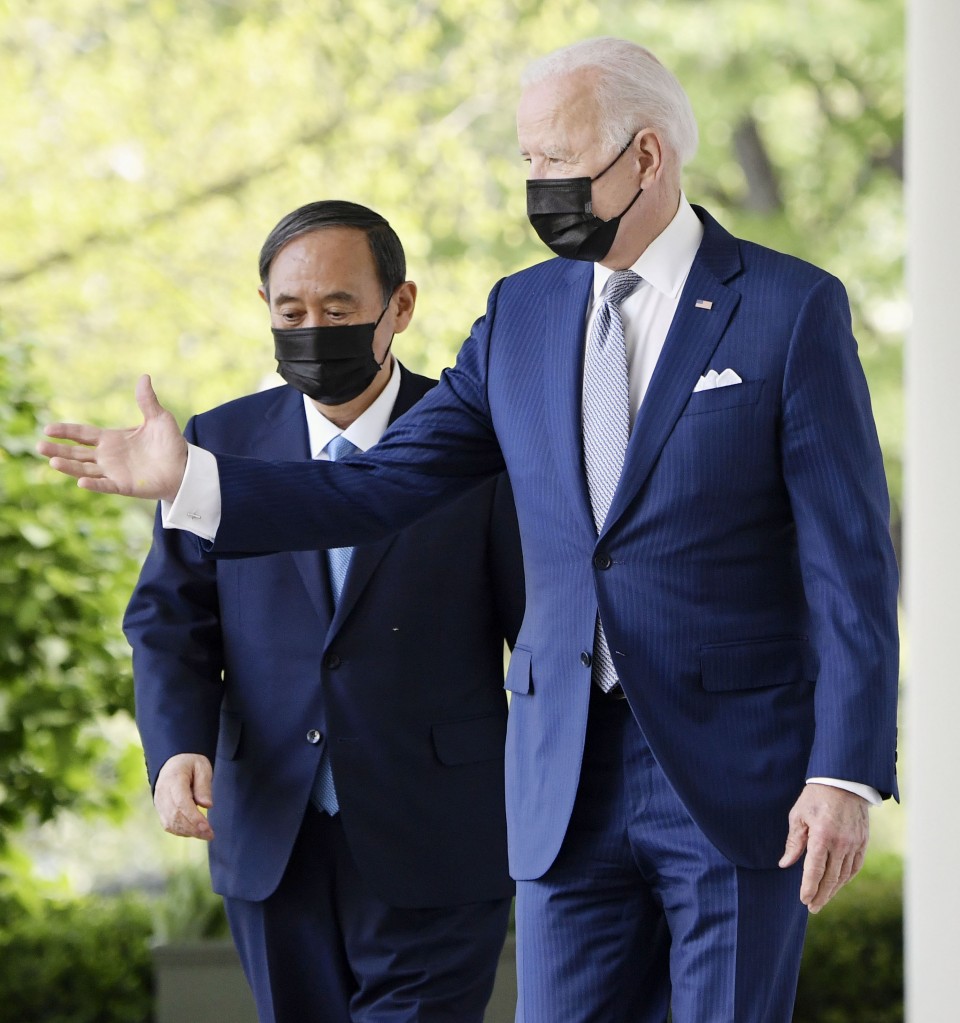Tokyo, 4 September, /AJMEDIA/
The United States on Friday appeared to tamp down concerns that Japanese Prime Minister Yoshihide Suga’s abrupt decision to resign will impact the bilateral relationship, calling the alliance “ironclad” and hailing recent joint efforts in addressing China and Taiwan issues.
President Joe Biden is “grateful for Prime Minister Suga’s leadership and partnership on the shared challenges we face in the Indo-Pacific and the world, including COVID-19, climate change, North Korea, China, and preserving peace and stability across the Taiwan Strait,” a White House spokesperson said.
“We wish Prime Minister Suga well for the future. The U.S.-Japan alliance is and will remain ironclad, not just between our governments, but our people,” the official said.
Despite the upbeat statement, the dramatic turn in politics for the close U.S. ally is likely to have brought some disappointment to the Biden administration, which has been working for months to step up cooperation with Japan to counter China’s assertiveness in the Indo-Pacific region.
“The Japanese government will have to start over with the Biden administration, which is a little disappointing, frankly,” said James Schoff, an expert on U.S.-Japan relations at the Carnegie Endowment for International Peace, a Washington-based think tank.
But he indicated that the impact may not be critical, saying, “I suppose it’s manageable at this early stage in the Biden term.”
On Friday, the 72-year-old Japanese prime minister made headlines by expressing his intention to step down amid public criticism over his response to the coronavirus pandemic and growing doubts among ruling Liberal Democratic Party lawmakers about his leadership.
A State Department spokesperson highlighted that Suga was the first foreign leader Biden asked to visit the White House for in-person talks.
In a joint statement issued after their meeting in Washington in April, Biden and Suga underscored “the importance of peace and stability across the Taiwan Strait,” making it the first time in more than half a century that the self-ruled island was explicitly mentioned by Japanese and U.S. leaders in such a document.
The situation regarding Taiwan has been drawing attention recently as China increases its pressure on the democratic island, which Beijing regards as a renegade province awaiting reunification.
Earlier this year, Suga also took part in the first-ever meeting of the leaders of the Quad group, which Biden hosted virtually. The grouping also involves Australia and India, two other key Indo-Pacific democracies.
The four countries have since been working to expand COVID-19 vaccine production for developing countries apparently in a bid to counter China’s vaccine diplomacy.
Schoff acknowledged he was surprised by the news that Suga decided not to seek re-election as LDP leader later this month, which means the ruling party will choose a successor who will become prime minister.
But Schoff also said the latest development had “become an increasingly more feasible outcome as Suga’s support level has dropped and the Delta variant (of the coronavirus) persisted in recent weeks.”
Suga became Japan’s prime minister in September last year, succeeding Shinzo Abe, who served for nearly eight years from late 2012 until he stepped down citing a chronic illness. Suga was the government’s top spokesman under Abe’s tenure.
While Suga was seen at the time as qualified to carry Abe’s policy legacy forward, experts have been wondering whether he would become a viable long-term leader or merely serve as a caretaker in the wake of Abe’s unexpected departure.
Patrick Cronin of the Hudson Institute, a Washington-based conservative think tank, said Suga’s resignation “may have been abrupt, but it was hardly unexpected.”
“From the moment he succeeded Shinzo Abe, there were questions about the likely duration of his tenure,” the expert on East Asia issues said.
While noting that “the momentary uncertainty about Japan’s leadership will complicate near-term diplomatic scheduling,” he also said the “immediate outlook is for a successor who brings mostly continuity rather than radical change.”
“In short, the domestic political turmoil inside Japan is not likely to disturb Japan’s basic policies and predictability as a staunch ally in seeking to uphold a free and open Indo-Pacific and international order,” he said.
In the past, Japan has tended to see short-lived governments after the departure of long-term leaders, with some experts calling the development a revolving door.
Before Abe took office in December 2012 and eventually became Japan’s longest-serving prime minister, the country had seen six prime ministers in six years — including Abe’s first stint from 2006 to 2007, cut short due to the same chronic illness.

